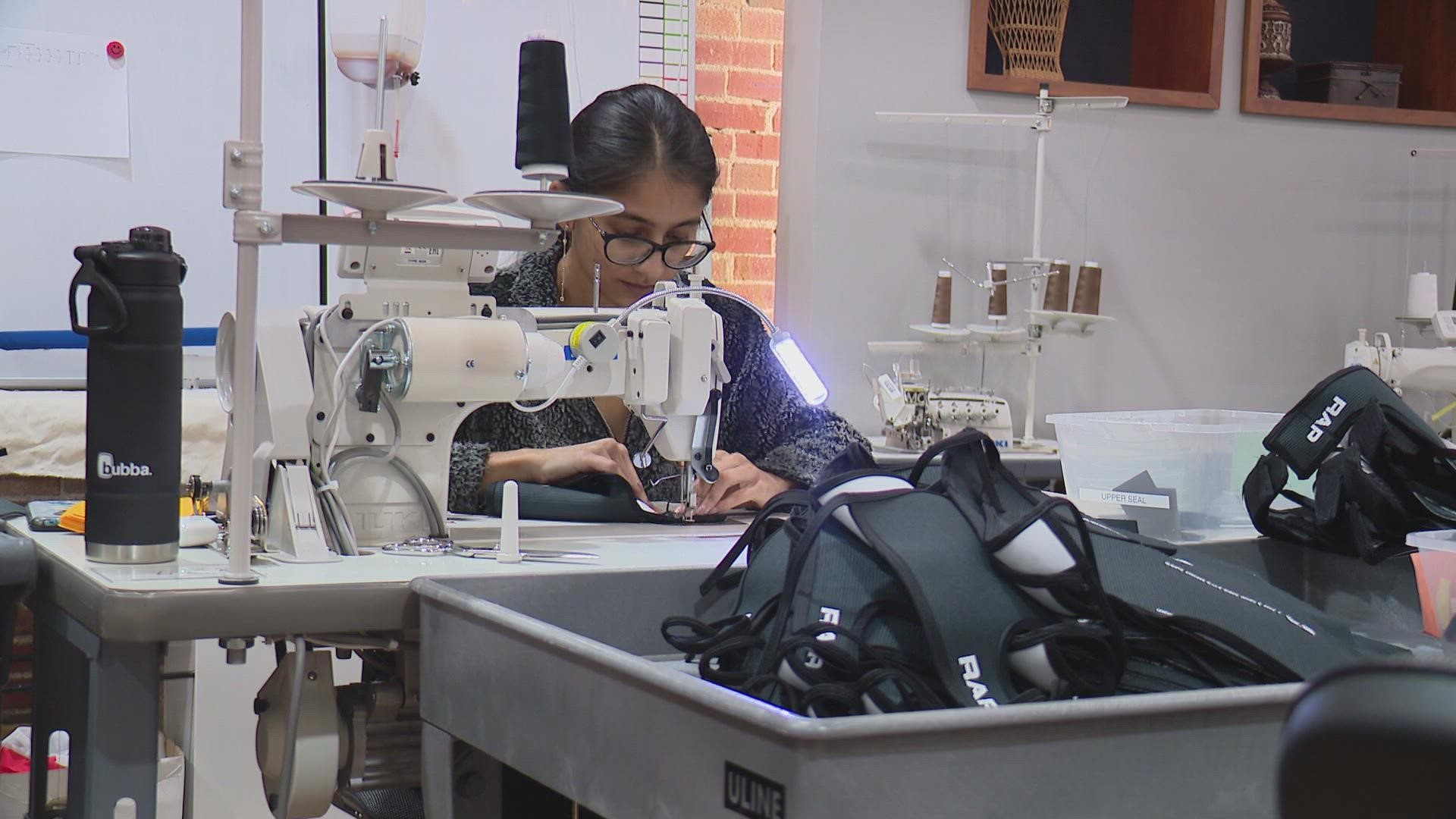ST. LOUIS — At a time when it's hard to hire and retain skilled workers across the nation, a St. Louis nonprofit is bucking the trend on a small scale. The Collective Thread sits on Washington Avenue, in the heart of the old garment district of St. Louis, and provides much-needed services to apparel brands across the world.
One day the group could be creating samples for Paris Fashion Week, the next they could be making blankets for an Etsy creator or creating patterns for a company in Los Angeles.
"I'll get a call every once in a while, and they'll say, 'I had no idea that you guys existed. I've been going to LA to get my samples made,'" said founder Terri Stipanovich.
Stipanovich started the nonprofit after traveling to East Africa on a vision trip in 2010. She said she was heartbroken when she saw refugee Somali women facing severe poverty and oppression. She had already worked with women in both areas and believed that economic empowerment was the only sustainable solution to the issues she was passionate about helping solve. The Collective Thread began offering sewing classes, which then led to providing living wage jobs for women in both Africa and St. Louis.
Today she employs more than a dozen women and men — many with ties to immigration or who are refugees — and they learn how to sew on an industrial and skilled level.
"These people can really sew and make clothes," said Ariona Baker, an on-the-job trainee who has a passion for fashion. "It was just an inspiration to me to work with these people, so hopefully someday their energy can rub off on me."
Baker attended cosmetology school in St. Louis and loved helping with her school's art shows. She was impressed with The Collective Thread's first-ever fashion show last year and started researching more about the nonprofit. She sent in a video application asking to work and learn there even though she only had basic sewing skills. She got the job and is now learning so much more, from how to use industrial machines to cutting and pattern making. She says there are a lot of opportunities to grow, too.
"I want to learn as much as I can for them because they are amazing," said Baker.
Baker said even when she makes a mistake, her co-workers will tell her to not be discouraged and keep learning. It's just a small way of showing her that skilled work can be dignified, and it's an important part of Stipanovich's mission.
"We are really about empowering women," said Stipanovich.
The Collective Thread also has a free sewing school as well as paid classes. They create soft goods like bucket hats, tote bags, and unique clothing. Their goods and services are growing in popularity, and Stipanovich said her goal is now to double their seamstress staff by next year. These are jobs that can typically pay anywhere from $15 to $23 an hour, and many of these jobs lead to much more growth in the fashion industry and pay even more.
As more US companies continue to deal with supply chain issues with overseas manufacturers, The Collective Thread is thriving. It is creating American-based jobs and revamping what skilled, industrial work can look like and even glamorizing it for people like Baker, who now recommends The Collective Thread to anyone who will listen.
"I want to chase my dreams the way I want to," said Baker. "I can see this company going far."

